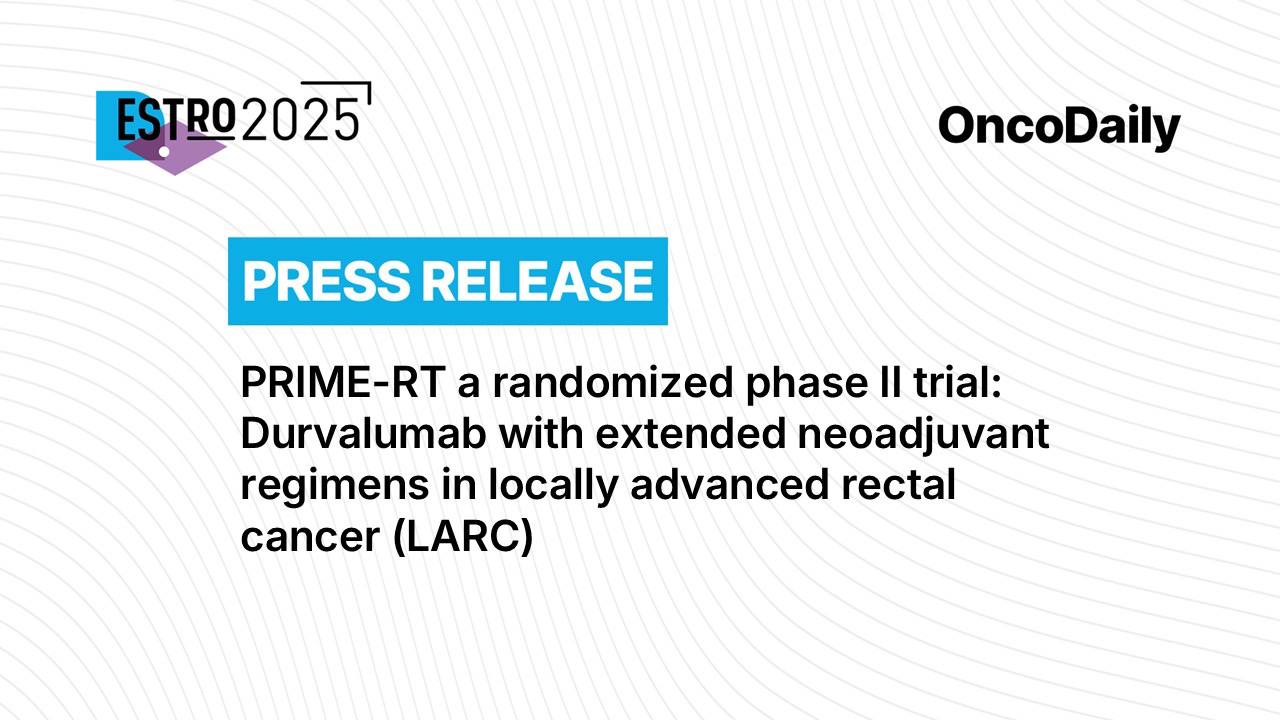Vienna, Austria — A new study suggests that combining immunotherapy with radiotherapy before surgery could significantly improve outcomes for patients with advanced rectal cancer, potentially allowing more individuals to avoid major surgery and a permanent stoma. The trial, known as PRIME-RT, was conducted across multiple centres in the UK and involved 46 patients with locally advanced rectal cancer. Participants received either a short-course or long-course of radiotherapy alongside Durvalumab, an immunotherapy drug that helps the body’s immune system detect and destroy cancer cells.
Results presented at ESTRO 2025, the annual congress of the European Society for Radiotherapy and Oncology, show that 52% of patients had no detectable cancer six months after completing the combined treatment — meaning they could be monitored rather than undergoing surgery. The most striking results came from the short-course radiotherapy group, where 67% of evaluable patients achieved a complete response.
“These results are exciting because they suggest we may be able to offer more patients a non-surgical approach,”
said Professor Campbell Roxburgh, lead investigator of the study from the University of Glasgow, UK.
“By combining immunotherapy with radiotherapy, we are seeing higher response rates than expected, especially with short-course radiotherapy.”
About the Study
PRIME-RT was a phase II clinical trial exploring organ-preservation strategies in rectal cancer. Participants were assigned to one of two treatment arms:
-
Short-course radiotherapy followed by Durvalumab
-
Long-course chemoradiotherapy followed by Durvalumab
The primary outcome was complete clinical response at six months post-treatment, assessed through imaging and endoscopic evaluation. Patients who showed no signs of residual disease entered a non-operative surveillance protocol, avoiding surgery altogether.
Key Outcomes
-
Complete response (all patients): 52%
-
Complete response (short-course group): 67%
-
Organ preservation rate at 6 months: Significantly higher than historic controls
-
Toxicity and side effects: Acceptable and manageable, with no new safety signals reported
Implications for Rectal Cancer Care
This study supports the potential for a non-surgical, organ-preserving approach in select patients with rectal cancer — an important shift in care that could improve quality of life without compromising cancer control.
“If confirmed in larger studies, this approach has the potential to influence the standard of care. It highlights the role of radiotherapy in supporting organ preservation and the integration of new treatment modalities such as immunotherapy.”
Future Directions
Researchers plan to further investigate why some patients respond better than others and to refine treatment strategies using biomarkers and imaging. The ultimate goal is to personalise rectal cancer treatment — offering effective, less invasive options tailored to individual patient profiles.
About ESTRO 2025
ESTRO 2025 brings together around 7,000 participants from over 80 countries, showcasing the latest research in clinical radiation oncology, radiobiology, medical physics, technology, and brachytherapy. Leading doctors and scientists from around the world present groundbreaking findings, in line with the conference theme: “Transformative innovation through collaboration”. ESTRO 2025 is the annual congress of the European Society for Radiotherapy and Oncology (ESTRO), an organisation dedicated to advancing cancer treatment through radiotherapy and multimodal approaches. ESTRO promotes education, science, and research and advocates for universal access to radiotherapy. With nearly 10,000 members worldwide, it supports radiation oncology professionals and the broader oncology community in their daily practice. For further information, embargoed press materials, or to arrange interviews with the researchers, please contact the ESTRO press office.
Read ESTRO 2025 Updates on OncoDaily



